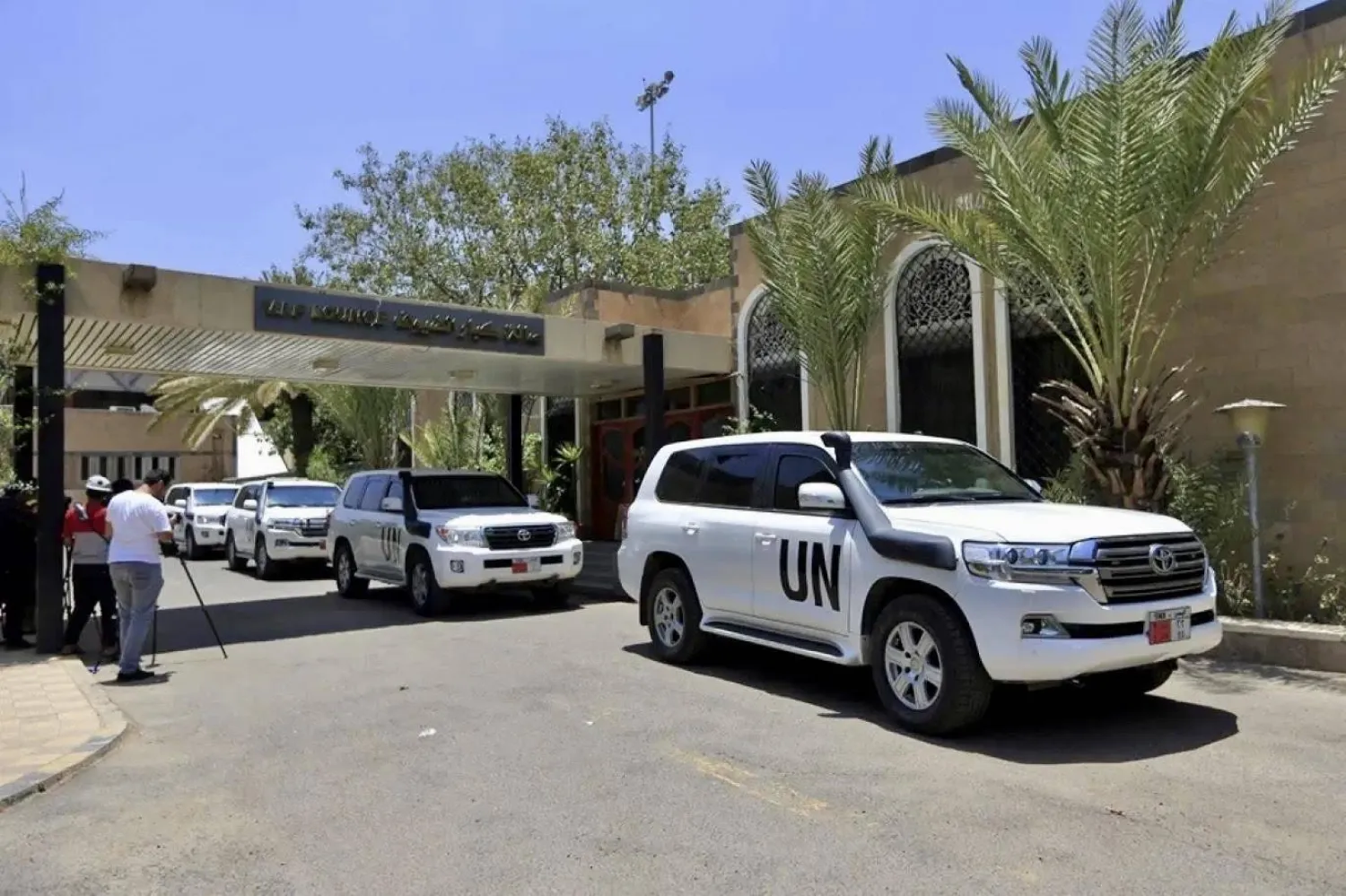The Iran-backed Houthi militias handed back on Monday a United Nations office they had seized in Sanaa earlier this month.
On August 3, the militias stormed the Office of the High Commissioner for Human Rights and expelled its staff, prompting UN Secretary-General Antonio Guterres to demand their immediate release, as well as the release of humanitarian workers held in their jails.
A spokesman of the UN mission to Yemen told Asharq Al-Awsat that the Houthis’ illegal government handed back the office to UN Resident and Humanitarian Coordinator for Yemen Julien Harneis.
“The Resident Coordinator says we are encouraged by this move and renew our call for the immediate and unconditional release of all arbitrarily detained staff of UN and NGO and civil society personnel,” said the Secretary-General's Spokesperson Stephane Dujarric.
Harneis reported that the office appears to be in its original state, but an inventory is currently underway, Dujarric told journalists.
He added that the UN and partners “should never be targeted, arrested or detained while carrying out their mandates.”
Guterres, meanwhile, reiterated that those detained must be treated with full respect for their human rights, and that they must be able to contact their families and legal representatives.
He said he “remains deeply concerned about the well-being of the United Nations personnel, members of civil society, national and international non-governmental organizations, diplomatic missions and private sector entities arbitrarily detained by the Houthis for more than two months and demands their immediate and unconditional release.”
“The humanitarian and development situation in Yemen is dire, with over 18 million people suffering the consequences of food insecurity, epidemics, displacement, damaged infrastructure and critical economic conditions,” he went on to say.
“The United Nations is working tirelessly to address the impact of the situation on the people of Yemen, but the safety of our personnel must be assured. The UN and its partners should never be targeted, arrested or detained while carrying out their mandates,” said Guterres.
Last week, UN Human Rights Chief Volker Turk condemned the Houthis for seizing the UN office.
“Entering a UN office without permission and seizing documents and property by force are wholly inconsistent with the Privileges and Immunities of the United Nations,” he said in a statement.
“This is also a serious attack on the ability of the UN to perform its mandate, including with respect to the promotion and protection of human rights, which my Office is there to defend.”
The Houthis had launched a campaign of arrests against UN and NGO staff in areas under their control around two months ago, accusing them of spying.









